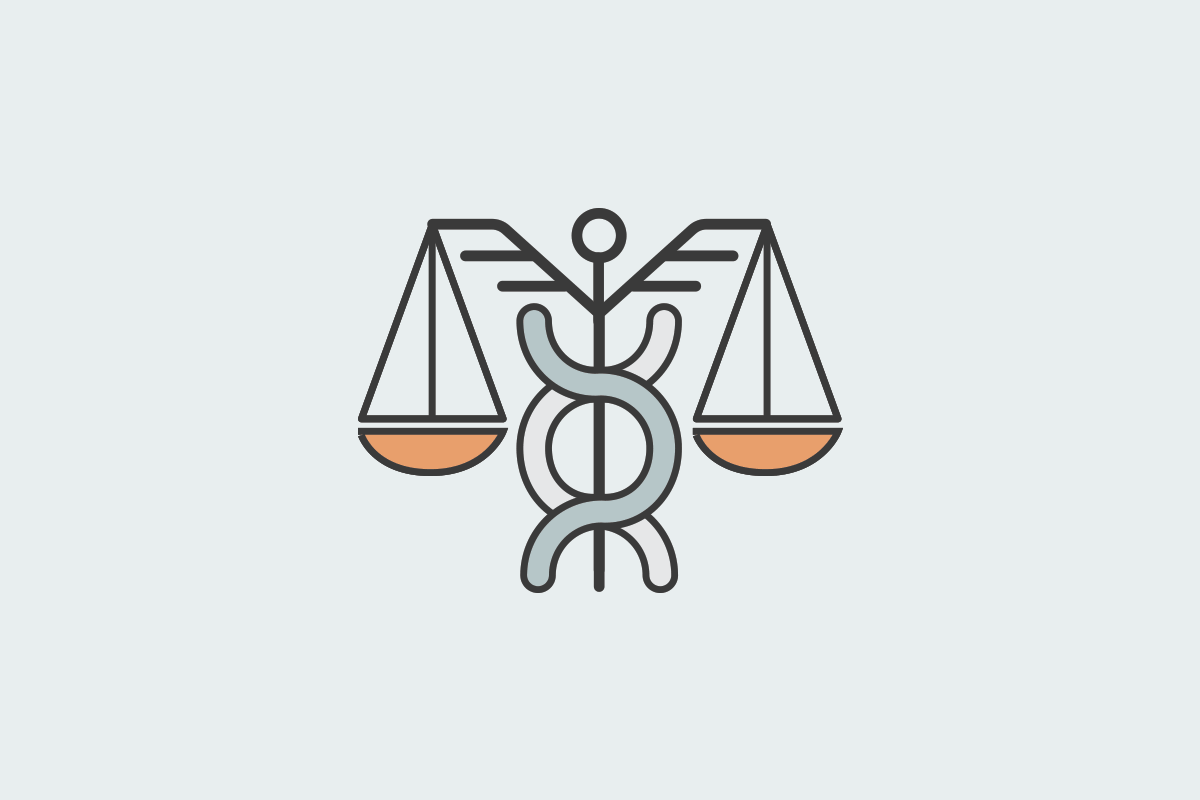During the COVID-19 pandemic, people spent a lot of time isolated and indoors, which helped foster an environment where some people now feel lonelier than ever. The result is a loss of social connectedness—the degree to which people feel the social connections and relationships in their lives to satisfy their wants and needs. When social…
Your Welcoa membership has expired.
The Significance of “Voluntary” in Workplace Wellness Programs
The following article does NOT constitute legal advice and should not be used as such. It is for educational purposes only. Readers should retain legal counsel to obtain definitive answers.
I have been on several calls in the last year discussing workplace wellness program ideas when I hear the words that sting my legal ears: “We have a voluntary wellness program, but employees are required to participate in the health risk assessment.”
As a wellness law expert, I am of the strong opinion that the words “voluntary” and “required” do not belong in the same sentence, much less the same paragraph when talking about worksite wellness programs that involve employee health information collection. This is because any employee wellness program that collects employee medical data, such as the data gathered from most health risk assessments (HRAs) or biometric screenings, as well as through medical exams by an employee’s health care provider, must be part of a “voluntary” worksite wellness program. This requirement that employee health information must be collected on a voluntary basis stems from the statutory language of the Americans with Disabilities Act (ADA).
ADA
The ADA states the following:
A covered entity may conduct voluntary medical examinations, including voluntary medical histories, which are part of an employee health program available to employees at that worksite. A covered entity may make inquiries into the ability of an employee to perform job-related functions.
42 USC § 12112(d)(4) (emphasis added). “Covered entity” means employer, employment agency, labor organization or joint labor-management committee. 42 USC § 12111(2).
No other definition of the word “voluntary” exists in the ADA, either in statutes or regulations. Once the Equal Employment Opportunity Commission (EEOC) withdrew its wellness incentive rules in 2016, the only remaining guidance from the EEOC dates back to July 2000, when the EEOC stated in its enforcement guidance that the word “voluntary” meant the employer could neither require participation nor penalize employees who do not participate. EEOC Enforcement Guidance No. 915-002 (July 27, 2000). But what does it mean to “require participation” or “penalize employees?” Does this mean that no incentives to participate in a health risk assessment or biometric screen are allowed?
For further clarification of how the law may define “voluntary,” we can look to other sources. Black’s Law Dictionary is a useful legal resource when more direct legal definitions are absent. Black’s Law Dictionary defines “voluntary” as follows:
Unconstrained by interference; unimpelled by another’s influence; spontaneous; acting of oneself. Coker v. State, 199 Ga. 20, 33 S.E.2d 171, 174. Done by design or intention. Proceeding from the free and unrestrained will of the person. Produced in or by an act of choice. Resulting from free choice, without compulsion or solicitation. The word, especially in statutes, often implies knowledge of essential facts. Without valuable consideration; gratuitous, as a voluntary conveyance. Also, having a merely nominal consideration; as a voluntary deed.
Black’s Law Dictionary, 6th Ed., at 1575. As one can see, when the statute or rule leaves a word undefined, legal experts look to other sources, such as case law or legislative history to find the possible meaning of a word. Black’s Law Dictionary cited a case from Georgia, Coker v. State, when defining the word “voluntary.” Reading that definition, along with the EEOC 2000 enforcement guidance, one can conclude that the word “voluntary” means a person chooses to do something based solely on their own free will. Nothing else interfered or influenced their decision.
When using the word “voluntary” in workplace wellness programs that have an HRA or biometric screen component, any incentives that are tied to participating in those data collection activities must not interfere with an employee’s free will to participate. This is why nominal incentives, like t-shirts or water bottles, do not usually pose a concern; most employees will not feel influenced to participate in an HRA or biometric screen in exchange for receiving such a small token. As soon as employers increase the value of the incentive, however, the more likely that an employee’s free choice will be compromised. When the free will to divulge sensitive employee health information is compromised because of a valuable incentive, that is when employees sue. I have discussed those lawsuits in previous blogs, such as the Yale University lawsuit.
As a result, when an employer says in one breath that they have a voluntary wellness program, but they require all employees to complete an HRA, visit to the doctor, or biometric screening, from a legal perspective, such a statement is contradictory. An employer cannot require an employee to divulge health information, either to the employer or the employee’s medical provider, and still deem such disclosure “voluntary.” Generally, the words “require” and “voluntary” mean polar opposites, which is why using them to describe the same wellness program makes no sense from a legal perspective. Black’s Law Dictionary defines “require” as follows:
To direct, order demand, instruct, command, claim, compel, request, need, and exact. State ex rel. Fromiller v. Hendrix, 59 Ariz. 184, 124 P.2d 768, 733. To be in need of. To ask for authoritatively or imperatively. State v. Community Distributors, Inc., 123 N.J. Super 589, 304 A.2d 213, 217.
Black’s Law Dictionary, 6th Ed., at 1304. Based on this definition, any incentive tied to employee health information collection that effectively compels the employee to participate would arguably act more like a requirement than a voluntary choice. The lesson to be learned is that words employers use to describe their program matter, as well as how employees perceive the incentive. Employers should avoid using words like “require” or “mandate” in reference to an employee wellness program that collects health information. And, employers should consider how a proposed incentive tied to health information collection will be perceived by employees; if employees perceive an incentive as compelling them to participate, employers should consider lowering the value to an amount that allows employees to feel like they have a choice.
GINA and FLSA
The ADA is not the only law relevant to workplace wellness programs that relies on the word “voluntary.” Compliance with the Genetic Information and Nondiscrimination Act (GINA) and the Fair Labor Standards Act (FLSA) also rely on the concept of “voluntary” acts.
GINA
The GINA regulations prohibit employers from requiring individuals to provide genetic information or penalizing those who choose not to provide it. 29 CFR § 1635.8(b)(2)(A). The regulations also require employers to ensure that the individual provides knowing, *voluntary,* and written authorization before providing genetic information. 29 CFR § 1635.8(b)(2)(i)(B). Genetic information includes family medical history information about the manifestation of disease or disorder in family members of the individual. 29 CFR § 1635.3(b). This means that employee wellness programs that include asking employees family medical history questions, such as part of an HRA, or involve information collection from employee family members such as a spouse or child, must make the disclosure of that information voluntary. Again, tying incentives to the disclosure of genetic information could undermine the voluntary nature of the disclosure. So, employers should use caution, as described in the above discussion concerning the ADA.
FLSA
Another federal law that requires a voluntary act by the employee for wellness compliance purposes is the FLSA. The FLSA establishes minimum wage and overtime requirements for many American workers. 29 USC § 201 et seq. Relevant to workplace wellness programs, the FLSA requires employers to pay workers for their time spent on mandatory activities. 29 CFR § 785.27. An employee could perceive a wellness activity tied to earning valuable incentives as a mandatory activity. If the government concluded the activity was mandatory and the employees were not paid for their time spent on the activity, the employer could face an FLSA violation.
Fortunately for employers, the Department of Labor (DOL) issued an opinion letter in 2018 concluding that a health benefits fair was voluntary, even though attending the fair resulted in a lower health insurance premium. The DOL did not evaluate the size of the health insurance premium reduction, which arguably could influence an employee’s decision as to whether they should attend or not. To this author, that was a critical omission, and under different leadership (which the DOL now has), the DOL may have issued a different opinion. For now, employers should be aware of potential FLSA issues if they “require” employees to participate in wellness activities through the use of hefty incentives or otherwise.
If you found this information helpful and want to learn more about health and wellness law, check out our other legal blogs and trainings.
If you have questions about wellness program compliance, visit the WELCOA Legal Help Desk or visit the Center for Health and Wellness Law, LLC.

Barbara J. Zabawa
President of the Center for Health and Wellness Law, LLC
wellnesslaw.com
Health Promotion Program Legal Updates*
Every 3rd Wednesday from 10:00–11:00 AM CT
*This is an exclusive WELCOA Member Resource.




